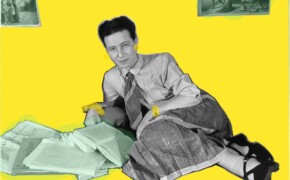Universitetsavisen
Nørregade 10
1165 København K
Tlf: 35 32 28 98 (mon-thurs)
E-mail: uni-avis@adm.ku.dk
Section
The University of Copenhagen and its partners want to do world-class bio- and life science research.

The University of Copenhagen has an invaluable collection of ancient Indian manuscripts. But all the people who knew how to read them have been let go.

Most people know that fibre is good for your digestion. Now, new research shows that our gut microbiomes are so different that we may need to tailor diets to individual digestion times and pH levels.

Danish universities took home millions of kroner in the competition for EU research project funding.

The new agreement restricts Danish-Chinese collaboration in sensitive research areas

Experiment in the field of cognitive psychology shows that social media do not overload or ruin our attention capacity. We are actually good at choosing the information we consider valuable.

You can't use this book as a blueprint for a new women's movement. But you can read it to remind yourself what feminism essentially is.

Danish universities are tightening security to counter the threat from foreign powers with new guidelines against espionage. But with tighter security comes less freedom of research.

Nina Rønsted, who is the first director with a background in botany, is to unify the museum, strengthen its working environment, and prepare for the new museum's opening after a period of turbulence

Albert Sneppen is a bright young star in the field of astrophysics . He has his own key to Copenhagen’s medieval Round Tower and has just finished a book about the universe's black holes. »My publisher joked that the book was written for the nerdy dad type. But my hope is that it is the 14-year-old girls that get their hands on it.«
